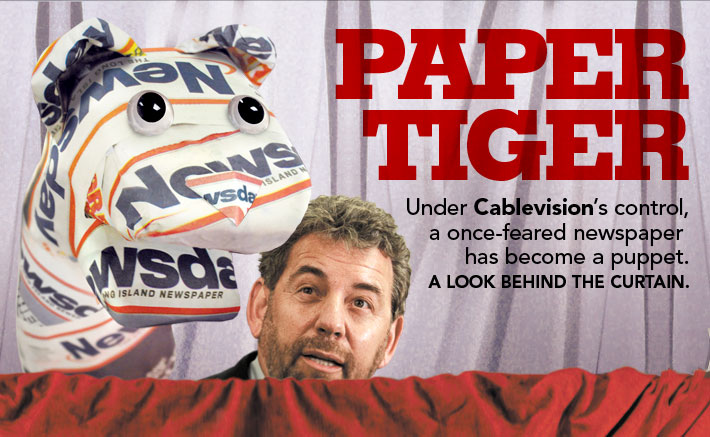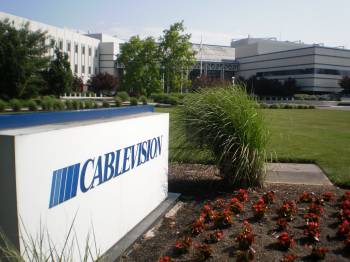Name a Google service that costs money. Point to a moment in time when you were doing something with a product born in the Labs of Mountain View, California (or one of their 69 other offices) and were asked for a payment of currency. I can think of two off the top of my head: Gmail, if you go over the storage limit, and Google Voice, if you call outside the country. By and large, Google’s offerings are free to use.
Now name a Verizon service that doesn’t cost money. Accessing the Internet? LOL. Calling someone? Haha, stop it. Sending a text? You are hilarious. I think you can access your Verizon account online once per month without paying a fee, and on Tuesdays between 3 and 3:15 p.m. you can go to its stores without being charged for walking through the door.
Yes, Verizon is a for-profit company and is entitled to charge for the things it sells. Nothing wrong with that (except for the $350 early termination fee looming overhead every time I see an iPhone 4). What’s worth pointing out is how differently they make their money.
Google makes money—huge, Scrooge-McDuck-vault-you-can-jump-off-a-diving-board-and-swim-in amounts of money—by selling targeted ads. We see them in search results, at the top of Gmail in a Web browser, on Web pages. These don’t cost you and I a cent, but cost the advertiser big bucks—somebody once told me each time an ad on the “lawyer” results page is clicked, it costs that advertiser $2,500.
Verizon makes money—enormous, where-do-we-put-it-all-should-we-send-some-to-the-Gulf-Coast-or-Haiti-yeah-right-let’s-buy-Ferraris-in-every-color-of-the-rainbow amounts of money—by selling TV, phone (landline and cellular) and Internet service. These cost you and I many, many, many cents.
It would seem like there’s not much Google and Verizon have in common apart from a couple vowels and a spot on the NYSE. That all changed a week and a half ago. Last Monday, Google CEO Eric Schmidt and Verizon CEO Ivan Seidenberg came out with a joint proposal for the future of net neutrality.
Net neutrality is the belief that all content on the Internet should be treated equally, with no favoritism played to certain types or prohibiting of others. It’s something everyone should want, and if you find yourself confronted with a person claiming net neutrality is actually bad for the consumer, run in the opposite direction immediately.
Why? Let’s say you and I both run competing websites. I could pay off an Internet Service Provider (ISP, like Verizon and Cablevision) to make my site load faster than yours. Or an ISP that offers OnDemand movies for $5 could threaten to throttle Netflix’s all-you-can-watch service unless the company pays the ISP a fee. There are plenty of other scenarios.
Veroogle’s proposal is a mixed bag. It mandates transparency from ISPs, so consumers can see exactly what’s allowed and what isn’t (GOOD). It lets ISPs manage network traffic in a “technically sound” way (BAD). It prevents the discrimination of certain types of traffic (GOOD), but lets ISPs make exceptions to that rule (BAD). And none of these provisions—except transparency—apply to wireless networks, so you get to see them f*ck you without anything hidden (WTF).
It’s just a proposal, so as ready as everyone is to break out the pitchforks and torches, we can’t just yet. And coming from Verizon—the company that sells an “unlimited” data plan that has a limit—nobody is surprised. But Google’s inclusion is strange, off-putting and ultimately unmasks the company as no better than bloodthirsty and money-hungry ISPs.
Google has long been the geek’s company: It’s been blanketing parts of the country in free Wi-Fi, it redirected every single click on YouTube on April Fool’s Day 2008 to the legendary Rick Astley video for “Never Gonna Give You Up” and has long gone by the motto “Don’t Be Evil.” Beyond cutesy things, Google made a $4.6 billion bid on a slice of wireless spectrum that forced the eventual winner—Verizon—to let any and every phone make use of it. It went from fighting Verizon with billions of dollars to aligning their interests.
Jekyll and Hyde, Trojan horse, Brutus—there are many cultural references to the stark 180 Google is pulling. It still sells ads to your computer screen, but ads on mobile devices—the ones that use wireless networks—is the Grand Canyon filled with $100 bills. Put that on one end of a seesaw and some nerds on the other and what do you think happens? “Don’t Be Evil” becomes “Don’t Forget To Add Another Zero To The End Of Our Profits.”
Google and Verizon are not very different companies, and that is because they are companies. They want to make money. The only difference is, Verizon’s been honest about it all along.
Follow me on Twitter! | Twitter.com/BradPareso
Kanye West and Justin Bieber have some sort of BFF-type thing going on over Twitter and I could not be more jealous. I had Elvis Duran from Z100 following me for a while but then somebody removed me from his list, probably because I listen to satellite radio.








